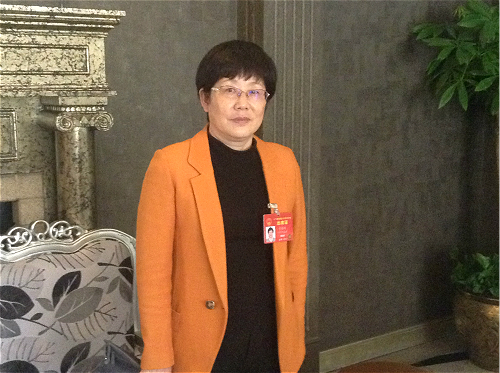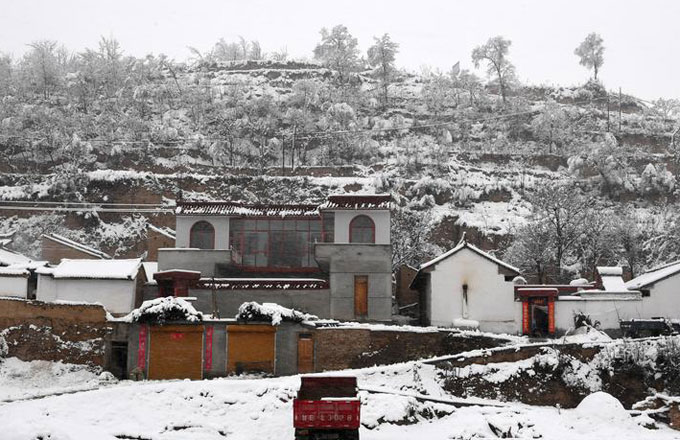University key to NE China revitalization, says NPC deputy
 |
|
Ning Guiling, an NPC deputy and vice-president of Dalian University of Technology. [Photo by Jiang Xingguang/chinadaily.com.cn] |
"In the documentary Deng Xiaoping in Historic Transformation, Deng decided that traditional college entrance examinations based on academics would be resumed in 1977," said Ning Guiling, vice president of Dalian University of Technology and an NPC deputy on March 12.
"So higher education was where he first turned his attention to after regaining the leadership," said Ning, a professor of chemical engineering, in an exclusive interview with chinadaily.com.cn. "Colleges and universities have directly supported the development and construction of Northeast China."
The two sessions -- the annual gatherings of the nation's top legislature and its top political advisory body -- started in early March, with more than 5,000 deputies and political advisors participating in them. ?
Ning said it is a huge challenge for her university in Dalian, Northeast China's Liaoning province, to compete and keep its favorable position in the "double first-class university" plan.The term "double first-class" refers to "world-class university" and "world-class discipline", which were approved by China's deepening reform lead group in 2016 as a new impetus for the development of China's higher education sector.
The government should build more platforms to attract talents to study and work in Northeast China after graduation, according to Ning, who emphasized that funding support to attract first-class teaching staff from home and abroad and to nurture academic leaders from the school's own talent pool is of great significance.
"Talent nurturing is the responsibility of the whole society," said Ning. "Colleges and universities cannot solve the problems all by themselves."
At a panel discussion with lawmakers from Liaoning province during the ongoing annual session of the country's top legislature, President Xi Jinping urged Northeast China to depend on the real economy and emphasize supply-side structural reform to revitalize the region's economic growth, which has slowed in recent years with overcapacity cuts in heavy industries.
At this stage, whether in supply-side structural reform or reform of State-owned enterprises, talent development is one of the most important elements, Ning added.
More integrated internship programs connecting the university, enterprises and government should be built, said Ning, adding that high-quality internships are very important for graduates to gain hands-on experience and enjoy an edge in the job market.
The school is also expanding channels for students to have broader global visions, according to Ning.
More than 20 percent of undergraduate students in Dalian University of Technology can access experience abroad through exchange and internship programs and summer schools, among other mechanisms, said Ning.
Boasting three campuses across Liaoning province, the university has over 3,600 faculty members, including about 600 PhD supervisors. It has over 34,700 full-time students, including more than 3,700 PhD students, 9,600 master's students, 20,700 undergraduates and more than 700 international students.

























